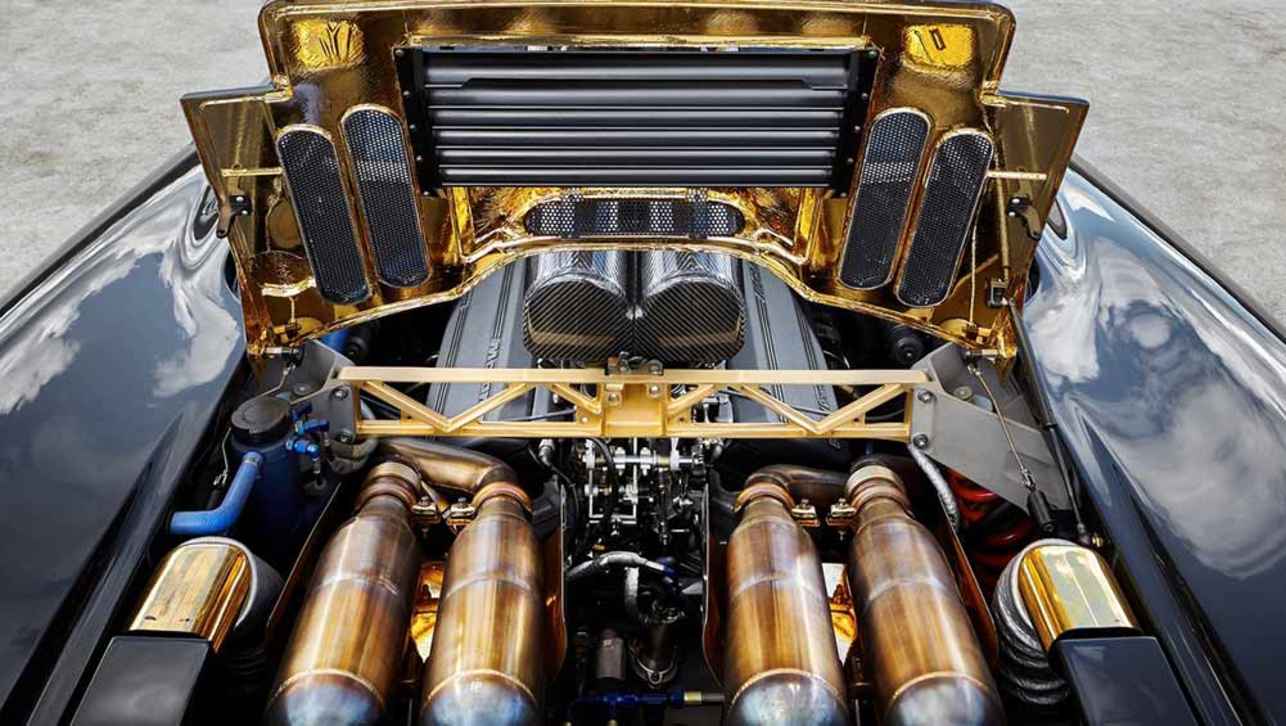British supercar builder McLaren has revealed it will collaborate with BMW for help in designing and developing its new-generation engines, the first time the two brands have come together since the legendary three-seat F1 in the early 1990s.
While the F1 utilised a 468kW/651Nm BMW-sourced 6.1-litre naturally aspirated V12, McLaren’s future engines will continue to be built by its long-running engine manufacturing partner, global engineering firm Ricardo, but will feature input from the Bavarian brand to increase power outputs and reduce emissions.
McLaren’s current range of Sports and Super Series vehicles utilise a 3.8-litre twin-turbo petrol V8 in various states of tune, with current power outputs ranging from 397kW/540Nm in the 540C to 497kW/700Nm in the limited-edition 675LT.
Emissions output in the 540C is measured at 249g/km, while the 675LT emits 275g/km.
The engine, dubbed M838T, has been in service since the introduction of McLaren’s first 21st century supercar, the MP4-12C in mid-2011, and also forms the combustion element of its cutting-edge P1 hybrid powertrain.
The alliance, part-funded by the UK Government via the Advanced Propulsion Centre, will be led by McLaren and will also see contributions from casting company Grainger & Worrall, composite structures expert Lentus Composites and the University of Bath, who will aid in the research and development capabilities of internal combustion engine efficiencies.
McLaren Automotive chief executive officer Mike Flewitt said the collaboration "is an exciting project that plays to the strengths of all partners" and will hasten the debut of new engines.
McLaren will unveil its next-gen Super Series model at this year’s Geneva motor show.
"We will continue to independently design and build our own engines, and the benefits of this project will help us accelerate the development of our next-generation of powertrain, as confirmed in our recently-announced Track22 business plan," he said.
The aforementioned plan involves the British brand investing around €1 billion ($AU1.43 billion) into research and development by 2022, resulting in 15 all-new cars with around half of them utilising hybrid technologies.
While no future models have been announced as recipients of the as-yet-undeveloped engine, McLaren will unveil its next-gen Super Series model – as well as a three-seat F1 successor – at this year’s Geneva motor show, with a range-wide refresh expected to follow in the coming years.




.jpg)



.jpg)





.jpg)


_0.jpg)

.jpg)
.jpg)
.jpg)
.jpg)




.jpg)
.jpg)
Comments